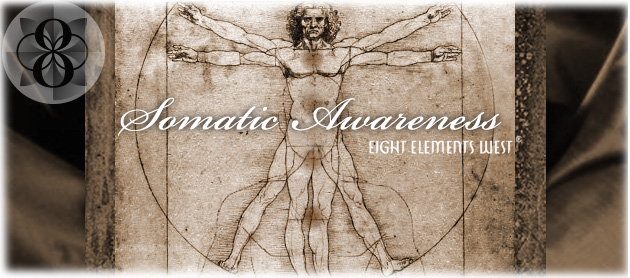Orientation The instinct for safety Orientation is the natural response of animals to scan the…

13 Tips for Natural Sleep Support
SLEEP
Sleep loss is perhaps most oftenly disrupted natural cycle of all for clients – and the one that is most crucial for irreplaceable restoration. Repairing this cycle is not negotiable!
Sleep loss is a multi-layered issue often rooted in unprocessed anxiety. Like any chronic condition, anxiety requires a change in physical lifestyle, a healing of emotions, and, at times, a shift in one’s spiritual direction. Rarely does a single answer suffice.
Unprocessed anxiety can be challenging to heal, because at the core sits unprocessed grief. Unlike sadness, grief is a process that prepares our ability to let go into a transition that subsequently births a renewed state. It is a complex process that involves all aspects of the self stepping forward for renewal. Not the least of these is the bodily aspect as a primary processor of grief. Here, assisting the body to move through fives basic states of arousal – Fight, Flight, Freeze, Friend, Fold – supports the complex integration of brain, body and heart to establish coordinate points that map the renewed self.
The transition to transform is much like a fruit falling from the vine, dispersing its former identity, to shift through a series of changes in order to bloom again. If the process of grief is full with presence, purpose and intention, the journey into an unknown dark for reconfiguration of the self will offer to us the rest and ecological replenishment needed to arise again refreshed and renewed – much like sleep.
Patience is required for this series of changes, multi-layered over six months or more, that will balance the nervous system. Physical changes include those in diet, exercise, bodywork, and self-care, while emotional and spiritual changes include healing trauma (most often unprocessed grief and loss), clarifying an inner sense of life purpose, or devoting oneself to timeless spiritual teachings. For some there may be the need to wean sleeping pills which disrupt natural sleep cycles, and therefore disrupt true restoration.
From a Chinese medicine perspective, sleep deprivation is primarily a “yin” issue. Yin is related to darkness, rest, and nighttime. Yang, on the other hand, is warm, active and related to daytime. For sleep to happen, the activity of daytime Yang must give way to the restful darkness of nighttime Yin. Modern life easily sabotages the sleep process from the preponderance of overactive daytime choices (work overtime) and pre-bedtime choices (excess electricity, for example).
By nurturing and melting into the dark retreat of yin energy, we allow ourselves to go within, and to receive and accept challenging vulnerable emotions and feelings on our life’s journey which may be keeping us up unconsciously at night. In yin, we let go the need to control that puts us in a “doing” mode (yang), and instead learn to trust the balance of our inner voice which guides us to the depths of our “being.” Doing (yang, contractive, active, giving) and being (yin, expansive, passive, receiving) don’t willingly strike a balance in American life. Yet it is the vital of flow of the tide in and tide out, expansion and compression, that keeps the ocean of the body and emotions fluid, the mind clear, and the self able to rest at night.
How much sleep is enough?
Even the experts can’t agree. “It’s almost impossible to recommend a specific number of hours, because sleep studies vary tremendously in their conclusions,” confirms John Hibbs, ND, clinical faculty member at Bastyr University. Sleep, like diet, is an individual matter.
If there’s no ideal number, is there a minimum recommendation?
Individual matter, once again. A Journal of the American Medical Association (JAMA) article states that studies on sleep deprivation suggest that sleeping only five to six hours per night can lead to impaired functioning. But Hibbs emphasizes that a small percentage of people live long, healthy lives on four hours of sleep just as some people thrive on ten. “People have the right to discover their own wellness,” he asserts. “I advise people to become good, honest observers of their bodies and minds and how they are functioning, and then to react responsibly.”
As an example of honoring your body’s signals, Hibbs notes a study suggesting that many peoples’ neuroendocrine systems are biochemically programmed to start a sleep cycle between 9 and 10 pm. However, many ignore the body’s initial signals of sleepiness. Nudging yourself to stay up causes the body to produce more adrenaline making it hard to get to sleep later.
How would I know if I need more sleep than I am getting?
According to Hibbs, you might experience drowsiness during the day, decreased concentration, impaired short- and/or long-term memory, decreased ability to multitask, reduced stress tolerance, susceptibility to infections, or mood changes. The JAMA article states that one or more nights of reduced sleep can have a negative impact on cognitive functioning and mood.
If I am sleep-deprived, what should I do about it?
There is much change you can effect with a self-help approach. Simple solutions like taking minerals such as calcium/magnesium powder and various herbs can be quite effective. But if sleeplessness is persistent, consult a health care provider to address the many possible causes that require a proper diagnosis. Causes may include a food intolerance, depression, blood sugar fluctuations, hormonal imbalance, sleep apnea, restless leg syndrome, lack of exercise and excessive stress. Insomnia may itself be a symptom of a chronic condition, such as depression, heart disease, sleep apnea, lung disease, hot flashes, or diabetes. It’s vital to visit a doctor if you have trouble sleeping.
Acupuncture can bring relief to these symptoms and conditions, determining the threads that run through each of them in order to identify a deeper root cause. Western medicine is often note trained to observe both overactive and depleted aspects of the nervous system, organs, emotions, and spirit in this same way. At Eight Elements we recommend an initial assessment by an acupuncturist, along with your physician, for medical conditions requiring close medical attention.
Acupuncture has been shown balance the body’s over/under active energies – the Yang and Yin energies – to bring about restfulness to the nervous system and anxiety and cure sleeplessness. According to Steve Given, LAc, clinical program coordinator at Bastyr Center, Chinese medicine practitioners often view insomnia as a Yin deficiency. A deficiency of Yin energies leads to night sweats, red face, low back pain, exhaustion and dark under eye circles. By nourishing yin deficiency, the state of relaxation, restoration and sleep returns naturally.
What are some Physical ways I can begin to nourish my yin Yin?
Here are regular body strategies – SUPPLEMENTS, DIET, MOVEMENT and your ENVIRONMENT – that many people successfully utilize.
SUPPLEMENTS
1) Valerian
Valerian (Valeriana officinalis) is a tried and true herbal remedy for insomnia. Today, it is an accepted over-the-counter insomnia remedy in Germany, France, Switzerland, Belgium, and Italy. How does valerian work? Some studies suggest that like conventional sleeping pills, valerian may affect levels of the calming neurotransmitter GABA. Unlike many other sleep medications, valerian is not believed to be addictive or cause grogginess in the morning.
Valerian is usually taken an hour before bedtime. It takes about one to two weeks to work. It should not be used for more than three months at a time. Side effects may include mild indigestion, headache, palpitations, and dizziness. You can take valerian in tea form, liquid extracts or capsules.
Valerian should not be taken with many medications, especially those that depress the central nervous system, such as sedatives and antihistamines. Valerian shouldn’t be taken with alcohol, before or after surgery, or by people with liver disease. It should not be taken before driving or prior to any heavy physical activity. And keep in mind, valerian works at varying level for the individual.
2) Herbal Tinctures from Herb Pharm
I recommend Herb Pharm to many clients. They’ve been around for over 30 years, and their founders Ed and Sara led the path for the public to have easy access to natural herbal tincture remedies. Some great products to try are blends like Relaxing Sleep Tonic or Anxiety Soother, or single herbs like Passion Flower, Skull Cap, Lavender or Lemon Balm (Melissa). You can order on Amazon or another online store, and also easily find these in Whole Foods or another natural grocer. Tinctures typically cost around $12. They are safe, gentle and effective tonics and healing agents for nerves and organs. Or try an evening tea like Stash Chamomille Nights Tea, which also blends in spearmint, lotus leaves, and lotus flower. Discover what works best for you. Be sure to let your physician and acupuncturist know if you decide to try one of these agents.
3) Melatonin
Melatonin is a popular remedy to help people fall asleep when the sleep/wake cycle has been disturbed, such as in shift workers or those with jet lag. Melatonin is a hormone found naturally in the body. The pineal gland in the brain makes serotonin which is then converted into melatonin at night when exposure to light decreases. Melatonin is typically taken 30 minutes before bedtime.
Some experts caution melatonin should not be used by people with depression, schizophrenia, autoimmune diseases, and other serious illness. Pregnant and nursing women should not use melatonin. A University of Alberta study examined 17 studies with 651 people and found no significant side effects when used for three months or less. The long-term effect of melatonin supplementation is not known. For more information, research “boosting melatonin naturally” online. You’ll find plenty of fun, healthy, natural tips to try.
4) Hylands Homeopathic Sleep
Try this simple remedy for natural relief of occasional sleeplessness and nervousness – Hyland’s Calm Forte. The active ingredients? Hyoscyamus Niger, Ignatia Amara, Kali Phosphoricum. Homeopathic remedies are typically gentle and safe and Hyland’s makes some of the best products for stress and sleep.
DIET
5) Cut Out Caffeine
Caffeine often has a pronounced effect on sleep, causing the inability to go to sleep and nighttime restlessness. In addition to coffee, tea,and soft drinks, look for hidden sources of caffeine such as chocolate, cough and cold medicine, and other over-the-counter medicine. Make the last cup of the day around 1-2pm, giving your body a good 6 hours of clearance prior to the body’s need to begin slow cycles from 7-10pm. However, it should be noted that some individuals do indeed have an enzyme to metabolize caffeine, causing them to need very little clearance time. Again, the most important factor is that you begin to sense and understand your own body’s needs and rhythms.
6) Avoid sweets and alcohol
Sugar gives a burst of energy that is short-lived and can cause uneven blood sugar levels. As blood sugar levels fall in the middle of the night, sleep is disrupted. Alcohol causes more “sleep arousals” during the night, and reduces the amount of time spent in deep sleep, the restorative part of your night. Limit your intake to one or two glasses a week for your body to re-regulate its resting phase rhythms.
7) Eat foods that promote relaxation
B vitamins: research suggests vitamins B3, B5, B6, B9 and B12 may help achieve good sleep by helping to regulate the body’s level of tryptophan. Tryptophan, an amino acid, is a precursor to serotonin which then converts to sleep-inducing melatonin. Taking B vitamins strengthens your nervous system, and by reducing daily stress, supports a sense of calm by night. Try simple foods rich in vitamin B6 like eggs and protein foods, sunflower seeds, and bananas. Carbohydrate snacks like whole grain crackers before bedtime can help raise serotonin levels. Just be sure to lay off the sugary sweets.
8) Boost magnesium-rich foods
Magnesium is a natural sedative. Deficiency of magnesium can result in difficulty sleeping, constipation, muscle tremors or cramps, anxiety, irritability, and pain. It has also been use for people with restless leg syndrome.
A very popular magnesium supplement is Calm – you can easily find this on your favorite online store. Foods rich in magnesium are legumes, seeds, dark leafy greens, almonds, cashews, blackstrap molasses, brewer’s yeast, and whole grains. Or try topical magnesium remedy such as Sweet Dreams Magnesium Cream or Smell Good Spa Essential Nighttime Cream.
MOVEMENT
9) COMPRESSION: Sandbags, Weighted Blankets, Long Sleep Pillows
Compression and containment can be included as part of movement of the body. With anxiety, stress and trauma sometimes the need for a feeling of containment can be quite strong – whether the need is filled by the warm embrace of another human, or of one’s own body and solid ego self.
The muscles, the fascia, the nervous system, sometimes need that compaction or compression inwards towards the bone, towards the spine, in order to feel a sense of solid, stable, restfulness within. Sandbags can be placed on your abdomen or your thighs to slow your breathing down. Weighted blankets can give proprioceptive cues to the skin to absorb the fast moving energy of the mind down into the body. And long sleep pillows can be hugged and held and packed into the side of your body, to support your lower back if you place one between your knees or hugging with your arms to relax them and feel openness in your chest.
10) Mindful Movement
How do you walk, speak, eat? Fast? Or slow? ‘Fast’ is a sign of revved sympathetic nervous system, ready to mobilize to fight, flight, play or work. Slow is the mode of the parasympathetic nervous system, or a restful, restorative, rebuilding, regenerating phase, such as sleep. Throughout the day, train your nervous system to cycle between these two types of activity, fast and slow, so that by night, it gently swings into its naturally slow cycle phase.
11) Movement to Get Out of Your Head and Into Your Body
Attend classes that focus on body awareness, to help you drop out of your head, and go into your body and heart. Practices like yoga, Nia, and Feldenkrais, can help you bring more presence and awareness to your body. There is a great app called Sleep Easy, that guides you somatically into the body.
12) Breath and Pranayama
Try this: Andrew Weil’s 4-7-8 Yoga Breath. The most important thing when you do breathing exercises not that you do them but how you do them, that you choose an area of your body to focus on to sense, like the backside of your lungs, the outer surface of the lung itself, and how it contacts your inner ribs on your back. That contact of your sensations, feeling, touch, absorbing the mind into the body deeply.
One simple note to improve the volume and depth of your breath, is to relax your tongue down to the bottom of your job, both lengthening it and broadening it, whilst keeping your lips together. I first heard of this technique in High Performance Mind by Dr. Anna Wise where she recommends this. She states that the tongue is used to verbalizing, all the time, even when you’re not speaking. You’ll notice when you relax the tongue, the brain also relaxes its inner conversation. There are a wide variety of movements to do with your tongue, your jaw, your mouth, and your teeth to create the sensation of openness in your cranial cavity, allowing it to relax more deeply, to release the chatter of the monkey brain, but the most basic is this one of relaxing the tongue all the way down.
13) Sleep Apps
Try Sleep Easy – it guide you to go into the body somatically, slowly, parasympathetically. I have spoken with the founder of this program, Dr. Richard Shane, and he has done a wonderful job creating simple somatic guidance that has good science behind it, including poly vagal theory. Another app called Sleep Cycle Sleep Tracker helps you track your sleep cycles, and as long as you don’t get too obsessed with it, it can provide good feedback. You may believe certain things about your sleep patterns, but to see it in this black-and-white may just give you the helpful insights you need to tweak your sleep patterns.
And 2 toppers . . . ENVIRONMENT – MAKE IT A YIN EVENING
Essential Oils
Three best more commonly used oils to try are 1) Lavender, a great muscle relaxant, 2)
Clary Sage, to assist with nervous exhaustion, and 3) Ylang Ylang, to balance anxious feelings. Place a little on pulse points (wrist, jaw/neck, inner arm) and a little on your pillow for sweet dreams.
Prepare a candlelight night, soft music and plenty of Yin
Non-natural lighting over stimulates the nervous system. At night, use candles. Begin to slow the mind down no later than 8pm. Get to bed by 10pm. Drink warm liquids with soothing herbs. Don’t eat late or heavy at night. Journal 8 minutes to unload your mind. Meditate for 8 minutes. Slow your body down. Keep your room cool (yin). Turn off your computer and lights. Repeat a mantra, “I am safe. I am secure. I am loved,” as you fall asleep, and assure the body it’s okay to let go.
 Gloria Gonzalez, is Founder of Eight Elements West, an Institute for Somatic Education and Integrative Wellness, and creator of I AM THE MEDICINE. Her private practice includes working with “leadership wellness” by healing accumulated stress and trauma through: Somatic Experiencing, Organic Intelligence, Visceral Manipulation and Craniosacral Therapy.
Gloria Gonzalez, is Founder of Eight Elements West, an Institute for Somatic Education and Integrative Wellness, and creator of I AM THE MEDICINE. Her private practice includes working with “leadership wellness” by healing accumulated stress and trauma through: Somatic Experiencing, Organic Intelligence, Visceral Manipulation and Craniosacral Therapy.

